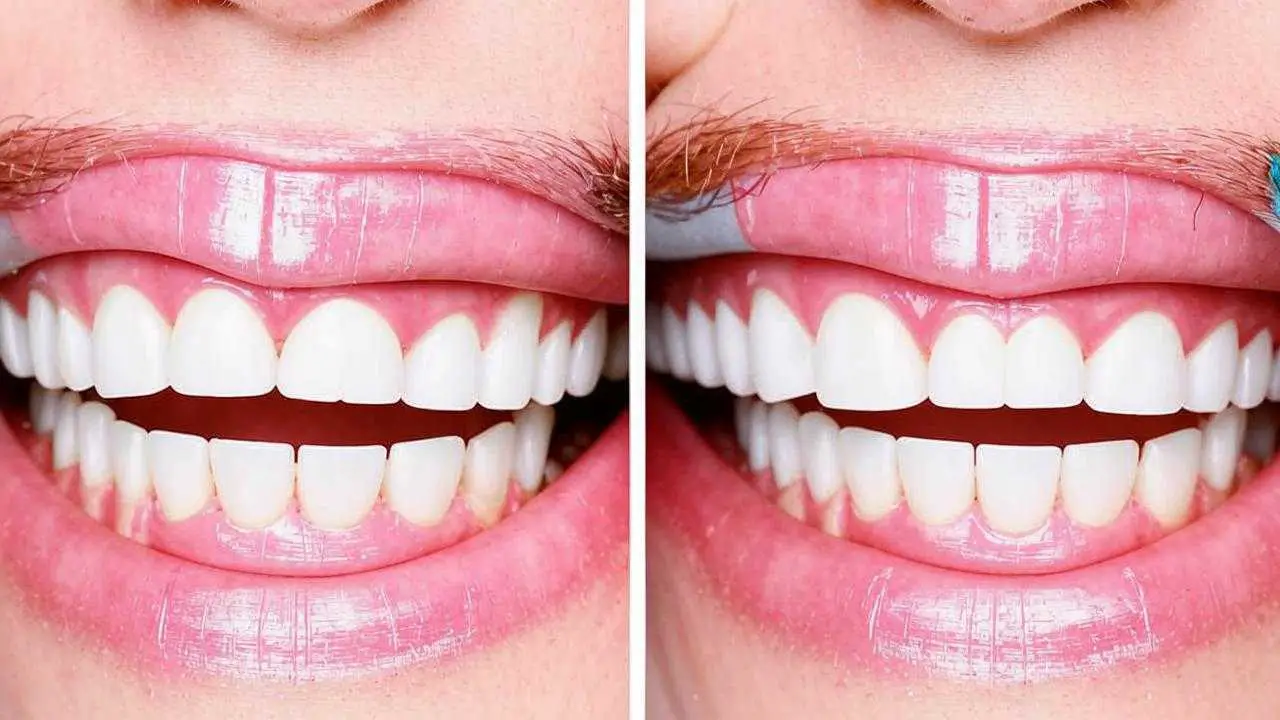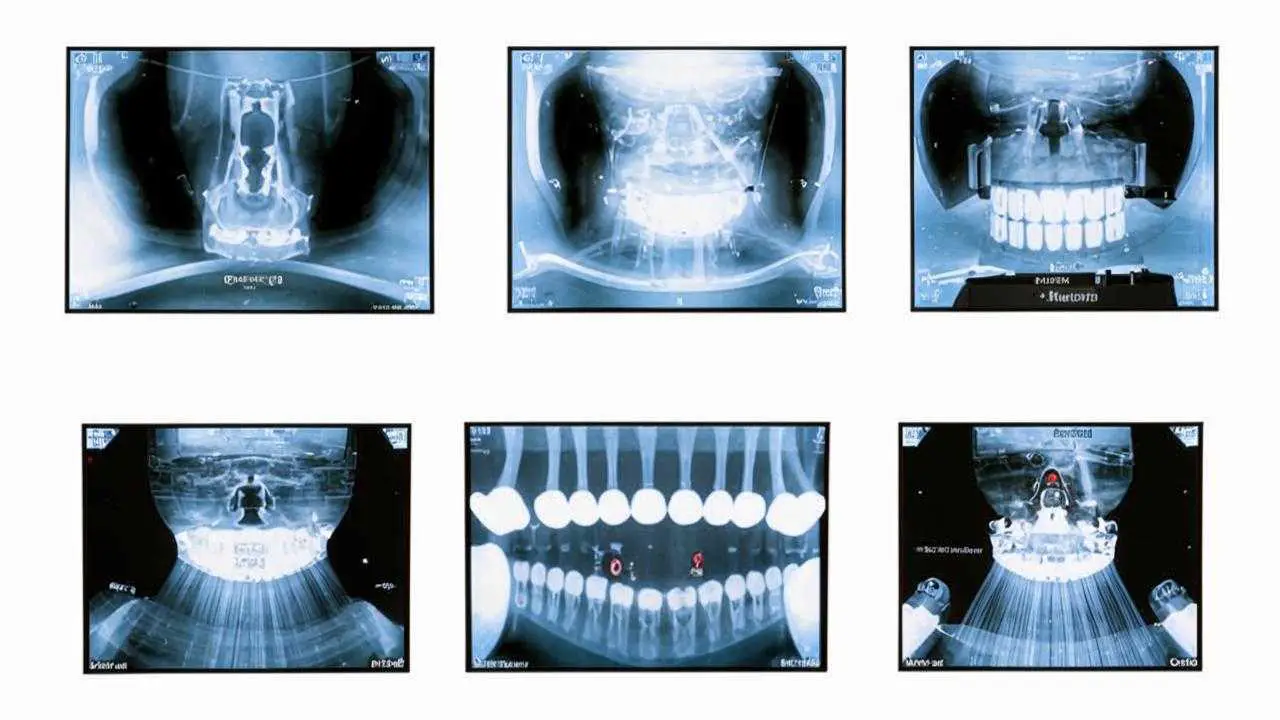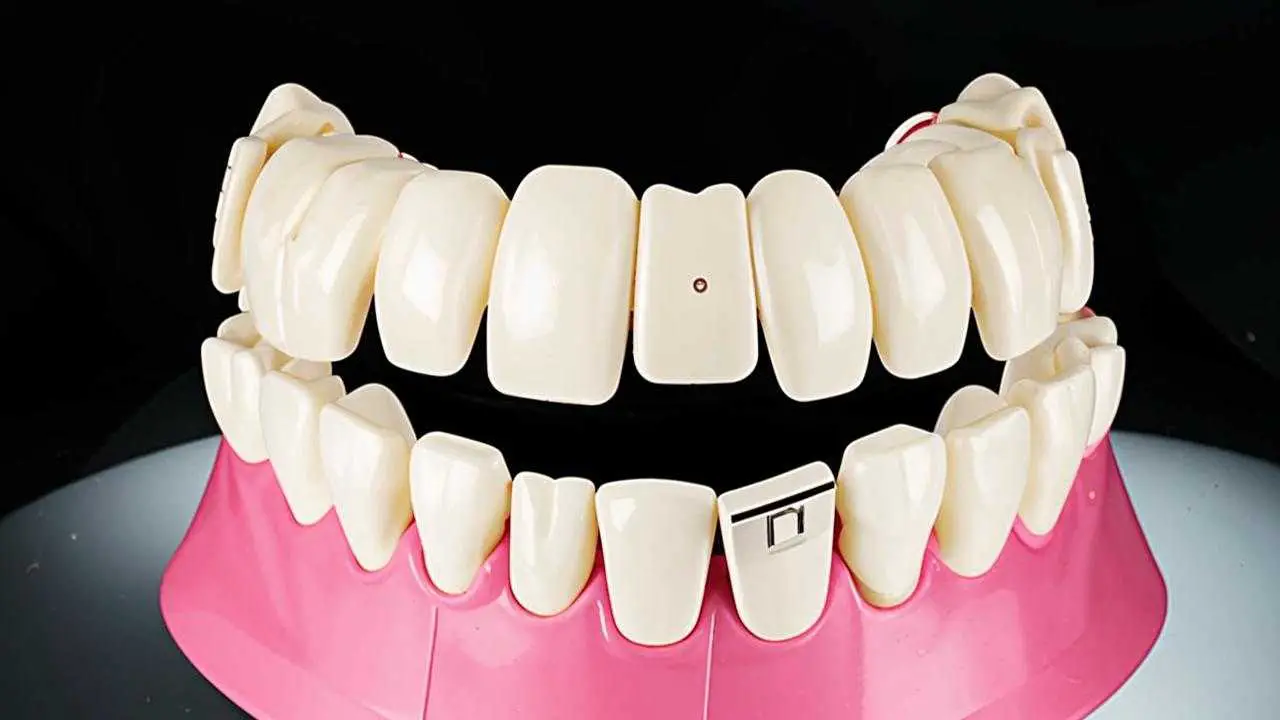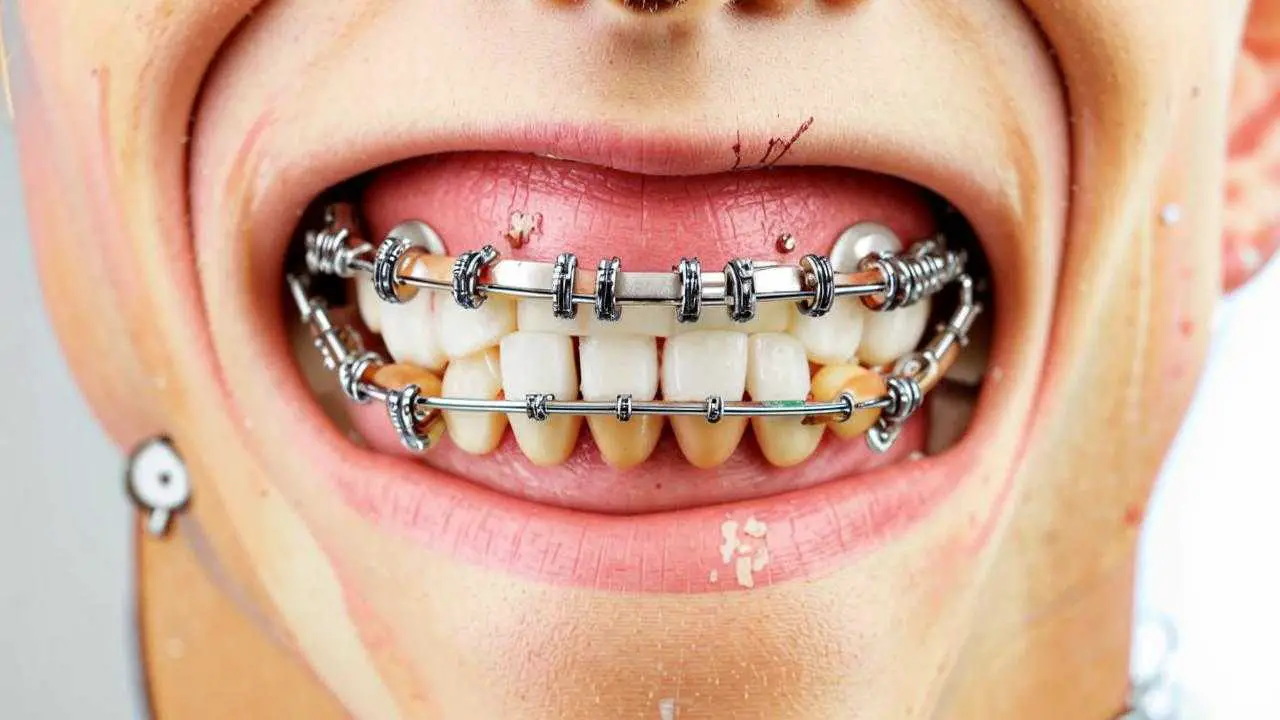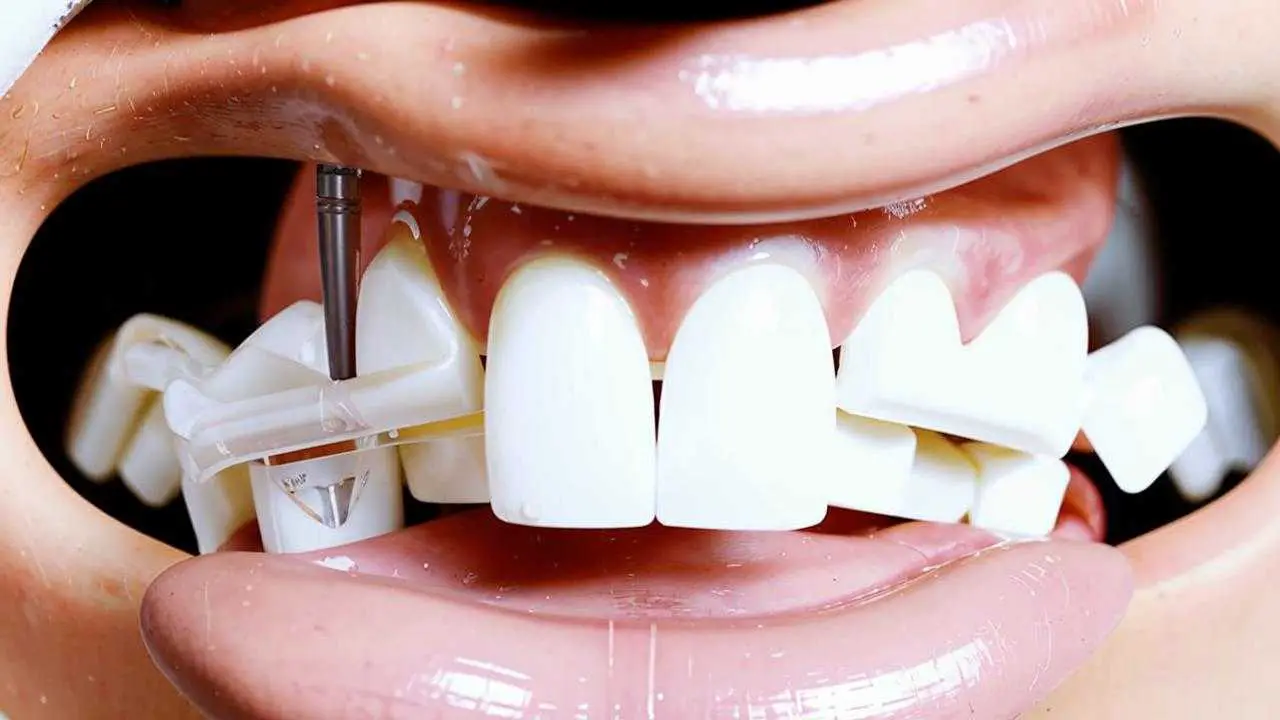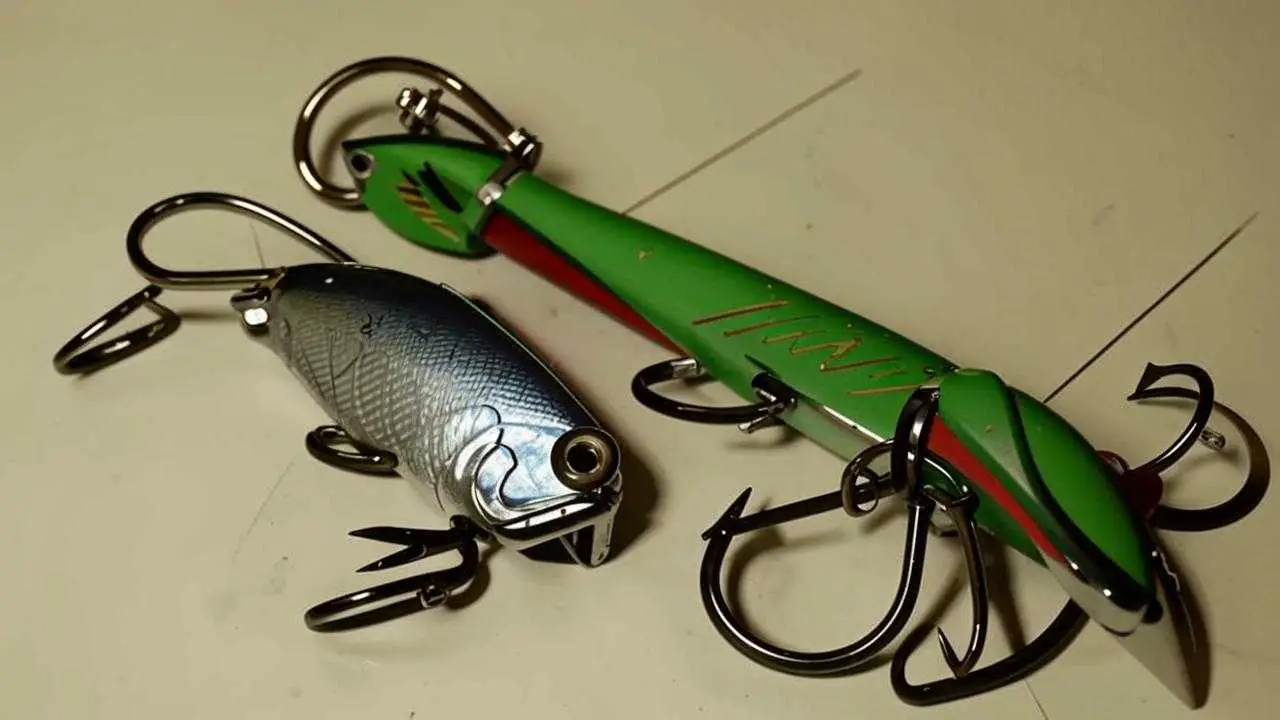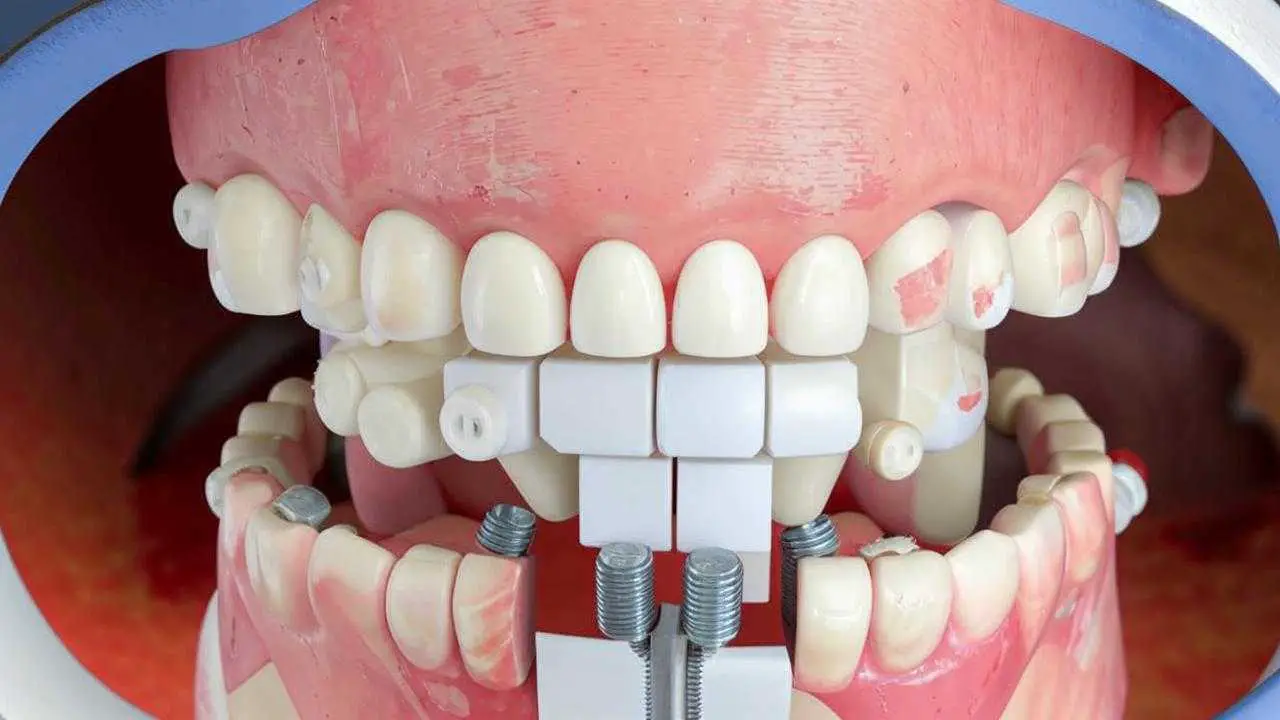読書時間 ~ 7分 読み取り回数: 13499
交叉咬合が起こる 患者の2%において.これらは小児と成人である。このような咬合には多くのバリエーションがあり、他の異常と組み合わさっていることもよくあります。不適切な咬合は治療できますが、標準からの逸脱に気づいたらすぐに治療を始めるべきです。そうでなければ、治療だけでは不十分かもしれません。
クロスバイトとは
クロスバイト は クロスバイト - 上顎と下顎が水平面で閉じる。片側または両側、前額部または側方に違反がある。咬合は交差位で起こり、歯列、個々の要素は重なり合っている。
交差咬合の徴候
目に見える症状の一つは、確かに顔の非対称性である:
- 唇の角の高さが違うため、笑顔がずれている(曲がっている);
- 顎の線が中心軸から外れている。
交叉咬合における視覚的非対称性は、唯一の徴候ではない:
- 口の中の歯並びの悪さ、叢生;
- 顎関節の変化。そのため、不快感や違和感、あくびをしたときの痛み、口が大きく開くなどの症状が現れます;
- 歯にかかる不均等な負荷は、急速な侵食を引き起こし、う蝕になりやすくなる;
- くさび形の欠陥;
- 顎の筋肉が緊張し、頻繁に痛みが生じる;
- 無意識に噛むことによる頬粘膜の外傷。
上記の徴候に加えて、反対咬合の変位は、口笛やヒューヒューという発音の言語障害を伴うことがある。
原因
反対咬合の原因は以下の通りである:
- 顎の狭窄;
- 歯根の非典型的な位置;
- 歯の萌出が早かったり遅かったり、乳歯が生え替わったり、咀嚼ユニットが予定日より早く失われたり。隣接する要素は、単に空いたスペースを埋めるだけです;
- 長期にわたる依存症(唇を噛む、指しゃぶりなど);
- 外傷、手術後の合併症;
- 骨の病気は深い咬み合わせの原因になる;
- 口呼吸。口呼吸をすると、舌が下がって上あごを本来のように押さなくなり、唇と頬が反対方向に影響し続けるため、上あごのアーチが狭く深くなり、反対咬合になります;
- 遺伝、遺伝的素因;
- 先天性欠損、妊娠中の病理、出生時の外傷。
咬み合わせの病態が睡眠中の体位に影響するという話はよく耳にする。
反対咬合の種類
反対咬合の矯正は、確立された異常のタイプによって治療方法が異なります。そして、交叉咬合のタイプは以下の通りです:
- バッカル.上顎は狭く未発達で、下顎は大きく可動性である。歯列の両側重なりと片側重なりがあり、歯列の変位はあってもなくてもよい。この咬合では、下が上に重なる。
- リンガル.上顎は拡大し、可動顎は小さくなるため、上方から頬の結節に覆われる。病態は片側性、両側性がある。
- 頬舌側 - 上記の2つのタイプの交叉咬合を組み合わせると、その治療はより複雑になります。
病因に従って、非定型咬合のタイプを分類する:
- ニャース - 顎の形の病理;
- 歯槽骨 - 歯、歯根、歯槽弓の大きさが正しくない;
- アーテキュラー - 顎の変位、顎関節症。
咬合離開のバリエーションは一般的で、中間の交叉咬合も珍しくない。
合併症の可能性
歯や顎の配列の異常は、顎の装置全体の働きに直接影響し、システム全体に減圧や過負荷がかかります。歯列、個々のユニットへの咀嚼負荷は、不正確、不均等に分散されるためです。顎関節の筋肉も同様で、過緊張が起こります。そして、もし反対咬合を治療しなければ、好ましくない結果を招く可能性があります:
- エナメル質が削られやすくなり、知覚過敏や病気にかかりやすくなる;
- 歯周病;
- 顎の筋肉 - 肥大、痙攣、ブラキシズム、筋肉痛;
- 顎の関節がカクカクと反応し、痛み、椎間板の萎縮が起こる;
- 消化管の疾患という形で消化器系に反応する。
言語障害、反対咬合による顔面の非対称性、精神的に不安定な状態が残る。
診断
診断のために、専門医は一連の検査で反対咬合の変位の程度を判定する:
- 視診:唇、顎の非対称性、口腔内の徴候(歯の叢生、頬の尖端の重なり)、頬粘膜の不適切な反りによる外傷を修正する;
- バイトロールを使用;
- X線、オルソパントモグラム、テレラジオグラム、CT、MRI(適応があれば選択可);
- アキシログラフィーを追加する。
矯正の経過を見るために、ビフォー・アフターの写真を撮る。
前歯部の交叉咬合は中歯部の咬合とよく似ていますが、これらは根本的に異なる病態です。このような形態の交叉咬合は、中間の咬合よりも治療がはるかに容易であるため、両者を混同しないよう、十分な診断が必要です。
反対咬合治療の選択肢と段階
患者の年齢層が異なれば、治療方針も異なる。
小児の交叉咬合の矯正
- 筋体操 が処方され、毎日のエクササイズを実践している。顎のズレに影響する筋肉を鍛える;
- 歯研磨;
- トレーナー - 印象から作られるシリコンオンレー。夜間と1日数時間装着します。噛み合わせや歯の成長を矯正します;
- 矯正装置プレート、フレンケルアジャスター、クラムトアクチベーターなど。これらの作用は、固定装置、傾斜、アーチのネジやその他の構造部分によって制御される歯列への最大許容圧力を目的としています。
反対咬合の歯列矯正は、思春期から行われます。矯正効果は実証済みで、使用後はプラスの効果しかありません。
成人の反対咬合の矯正方法
- エングル装置 顎アーチの伸縮のため。アーチを形成するためには、定期的な調整が必要です。その他、口蓋を急速に拡大する器具として、口蓋拡張器があります。
- 歯列矯正 反対咬合の場合、適切な矯正治療を行うことで、下顎/上顎(狭くなっている方)を元の大きさ、形に戻すことができます。空いたスペースに遠くのユニットを移動させ、歯群の位置を修正します。構造は、各歯にリテーナーを装着したメタルアーチです。矯正医が保定の程度と移動方向を調整します。治療期間は小児で1~1.5年、成人で2~2.5年です。
- エリナーズ が人気を集めている。これは、トレーナーのようなポリカーボネート製の透明なマウスガードである。歯の一定の軌跡に沿って動くように作られています。目立たず、軽度から中等度の病態に適しています。1年後には、ポジティブなダイナミクスを見ることができます。
- 耐久性のあるプラスチックで作られたクラウンは、あるベクトルにおいて歯に十分な圧力をかけます。例えば カッツのクラウン は、最大6歯までの前歯部の矯正に適しています。クラウンは舌側にヒンジを備えており、その長さは変位させるユニットの数によって異なります。
- 骨切り.顎をのこぎりで切り、正しい位置に取り付け、特殊な構造で固定する外科手術。その後、患者には歯列矯正や、結果を固定するための別のシステムが処方されます。骨格が非対称で、他の方法では治療が困難な場合に用いられます。
予防
交叉咬合などの異常な咬み合わせの出現を防ぐためには、母親の妊娠中であっても、健康状態を注意深く観察する必要があります。母親の病気、強い薬の服用、ストレスは、胎内にいる子供の顎システムの発達の病理に影響を与える可能性があります。
赤ちゃんの出現後、指やおもちゃを長く吸わせない。母乳育児を守る。口呼吸がないように、耳鼻咽喉科疾患の適時治療に従う。
交叉咬合の兆候が見られたら、できるだけ早く医師の診察を受け、治療を開始すること。
